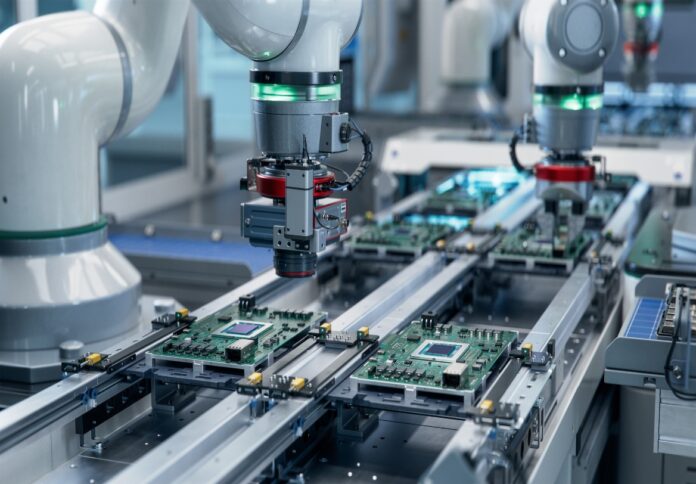
As industrial needs rapidly evolve, demanding continuous improvement in products, processes, and services, Hubertus Breier, Board Member for Technology and Innovation at LAPP, outlines six key trends shaping the industry’s future.
One of the most transformative trends is the adoption of Direct Current (DC) technology, which has a significant role to play in the energy transition and enhancing sustainability.
DC grids have been shown to reduce energy consumption in existing systems by eliminating unnecessary conversion stages.
Furthermore, DC grids in factories can decrease peak power demand at the supply connection to the grid, contributing to greater overall efficiency.
LAPP is pioneering this shift, developing cables and wires for low-voltage DC grids for industrial applications.
Their collaboration with Fraunhofer IPA to develop a scalable DC network concept for a production site in France demonstrates the potential of DC grids to support sustainable energy practices, such as integrating solar power systems.
The digitalisation of industrial processes is another pivotal trend, with global data generation forecast to reach 181 zettabytes by 2025.
Fibre optic cables are crucial in addressing the growing need for rapid and stable data transmission. LAPP is already leading the way in providing fibre optic cables and connectors, ensuring that industries are equipped with the necessary infrastructure for a data-driven future.
In particular, fibre-to-the-machine solutions will be key to supporting the increasing connectivity of factory machines.
Single Pair Ethernet (SPE) is also poised to revolutionise industrial networking. LAPP, as a member of the SPE Industrial Partner Network e.V., is actively contributing to the advancement of SPE technology, which aims to replace traditional fieldbus systems with Ethernet protocols.
This will enable seamless communication from field devices to the cloud, paving the way for the Industrial Internet of Things (IIoT).
LAPP is expanding its portfolio to include innovative SPE solutions, including Ethernet-APL, which ensures safe data transmission in potentially explosive environments, even over large distances.
Miniaturisation continues to be a driving force in the industry, with applications becoming more compact and the demand for smaller data and power connections growing.
LAPP is responding to this trend with the development of EPIC® POWER M12 connectors, designed for use in confined spaces and ideal for applications such as collaborative robots (cobots) in production and warehouse environments.
These connectors were developed using virtual simulations to meet the compact requirements of modern industrial systems.
As machines and systems in smart factories become increasingly networked, electromagnetic compatibility (EMC) is becoming a critical concern.
Unwanted currents from frequency converter-controlled motors can disrupt data transmission and affect system performance.
LAPP has addressed this challenge with the ÖLFLEX® FD Servo zeroCM motor cable, designed to reduce leakage currents and optimise EMC in industrial applications, ensuring stable and reliable machine operation.
Sustainability remains a priority, with growing demand for environmentally friendly and energy-efficient solutions. LAPP has introduced cables such as the ETHERLINE® FD bioP Cat.5e, which features a partially bio-based TPU sheath material, and is exploring the use of recycled materials in cable production.
In addition, LAPP is focused on increasing transparency and providing detailed product carbon footprints, supporting the industry’s broader sustainability goals.




















